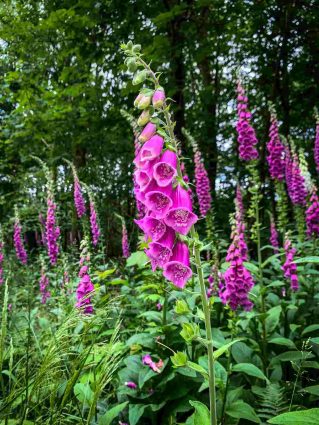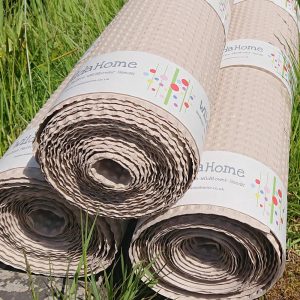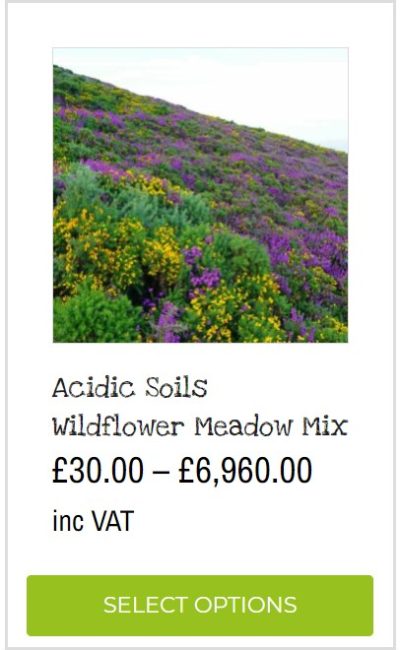Flourishing in Acidity: The Wildflowers of the UK’s Acid Soils
Introduction: The Special Realm of Acidic Soils
Acidic soils, with a pH below 7, present a unique habitat in the UK, fostering a biodiverse community of plant species, including numerous wildflowers. These environments are crucial for conservation and gardening efforts focused on enhancing biodiversity.
Where Acid Thrives: Distribution of Acidic Soils in the UK
Acidic soils in the UK are predominantly found in areas such as the Scottish Highlands, Wales, the Lake District, and the South West’s moorlands. These regions offer unique habitats for flora and fauna, fostering biodiversity hotspots. The acidic conditions are typically due to underlying geology, like granite or sandstone, and the presence of peat. These environments support species adapted to low pH, contributing to the UK’s ecological richness.
A Spectrum of Species: Wildflowers of Acidic Habitats
Wildflower species found on acidic soils in the UK include the heather (Calluna vulgaris), known for its purple flowers that cover heathlands; the bell heather (Erica cinerea), with its bell-shaped pink flowers; the carnivorous round-leaved sundew (Drosera rotundifolia), which traps insects on its sticky leaves; and the foxglove (Digitalis purpurea), recognizable by its tall spikes of pink-purple bells. These species are adapted to thrive in the low pH of acidic soils, each playing a unique role in their ecosystems by supporting a variety of wildlife, particularly pollinators.
Wildflower species found on acidic soils in the UK include the heather (Calluna vulgaris), known for its purple flowers that cover heathlands; the bell heather (Erica cinerea), with its bell-shaped pink flowers; the carnivorous round-leaved sundew (Drosera rotundifolia), which traps insects on its sticky leaves; and the foxglove (Digitalis purpurea), recognizable by its tall spikes of pink-purple bells. These species are adapted to thrive in the low pH of acidic soils, each playing a unique role in their ecosystems by supporting a variety of wildlife, particularly pollinators.

Cultivation and Care: Sowing Seeds for Future Floras
The process of preparing acidic soils for sowing and the correct methods to encourage successful wildflower establishment are critical. Wildahome provides comprehensive guidance on soil management, seed-sowing techniques, and aftercare, aiming for the flourishing of wildflower meadows.
Innovations in Restoration: The Utility of Wildflower Seed Mats

Wildahome’s wildflower seed mats offer an innovative solution for challenging acidic soils, simplifying the restoration process. These mats allow for even seed distribution and provide immediate protective coverage against potential threats, facilitating more accessible establishment.
Conservation and Community: A Collective Endeavor
The efforts to restore wildflower habitats on acidic soils highlight the importance of conservation work. Wildahome’s dedication to using locally sourced seeds exemplifies the potential impact of focused restoration projects on the UK’s natural heritage and biodiversity.
Conclusion: Sowing Seeds of Change
Restoring wildflower meadows on acidic soils presents an unparalleled opportunity to enrich the UK’s biodiversity. With Wildahome’s expertise and strategic use of locally sourced seeds, communities are empowered to create ecosystems that support wildlife and add to the landscape’s beauty. These endeavours mark a significant stride towards sustainable conservation practices, underscoring the vital relationship between soil, plant life, and the broader environment.
Seeding Biodiversity: Wildahome's Commitment to Acidic Soil Restoration in the UK
Wildahome’s initiative in providing locally sourced wildflower seeds and innovative seed mats tailored for acidic soils in the UK represents a significant contribution to biodiversity conservation and habitat restoration.
Our commitment to promoting native species ensures genetic compatibility, supports local ecosystems, and enhances the resilience of wildflower meadows. Wildahome plays a vital role in preserving the UK’s natural heritage and fostering environments where wildlife and flora can thrive by empowering communities and gardeners with the tools for ecological restoration



